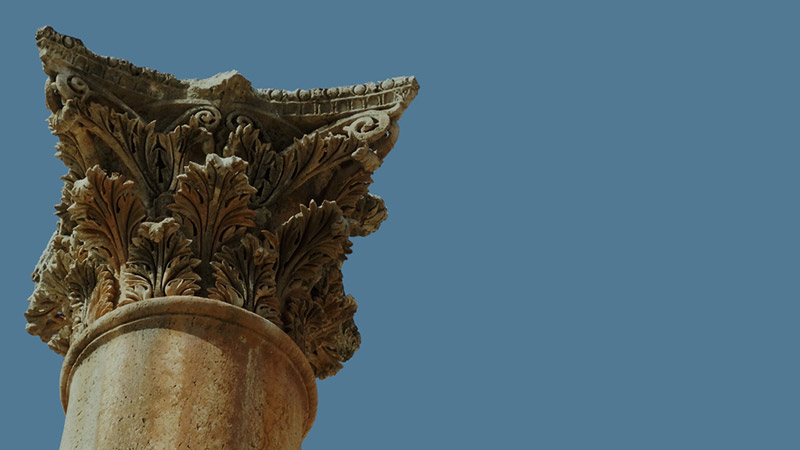Updating...
Showing 12 of 103

The Jewish RevoltsJewish people of Jesus' day had a passionate desire for freedom from the domination of the pagan Romans and the oppressive Herod dynasty that had ruled them for many years. Revolt seethed continuously, mostly underground, for mor...
MORE
The Herod Family TombThe tomb to the west of Jerusalem was at one time thought to be the burial place of the Herod family. Later research indicated that it was not Herod's tomb. It is noted for the "rolling stone" still in place next to ...
MORE
The lower palace, viewed from the height of the upper fortress, is massive. The pool with its island is most impressive in the wilderness. The remains of the colonnaded garden are clear. On the lower right are the excavations of the lower palace b...
MORE
The pool of the Herodion was one of the largest in the ancient world. It is 10 feet deep, 140 feet long, and 200 feet wide. Herod typically built as if he could defeat nature. Since the Herodion is located in the desolate Judea Wilderness, Herod c...
MORE
2,000 BC- God sends Abraham to the area of Mount Moriah to sacrifice Isaac.1,000 BC- David captures Jerusalem, names it the City of David, and makes it his capital.950 BC- Solomon spends seven years building the temple, then spends thirty years bu...
MORE
This view is from the northwest looking southeast across the New City. Jerusalem expanded to the north in Jesus' time, to the area in the foreground called the New City. The wall in the center is the second wall, and the area inside it is the busi...
MORE
The Seeds of RevoltThe Seeds After the Romans began their occupation of Judea in 64 BC, the Jews became divided on how to respond.The religious leaders, particularly the Pharisees, believed the Messiah would come from the Jewish people and make Is...
MORE
God despised the Canaanite high places where pagan worship was carried out. His orders to the Israelites were to destroy them. Yet God communicated with his people through their culture. He allowed them to establish high places where he could meet...
MORE
This spectacular theater was built during the Roman period in the Decapolis city of Beth Shean, known also by its Greek name, Scythopolis. It was more than 360 feet in diameter and seated over 7,000 people. As seen here, one tier of seats remains....
MORE
Herods' love of Hellenistic culture and his desire to introduce it to the Jewish nation is illustrated clearly by the theater at Caesarea. Apparently, this structure was built outside the city because its obscene and bawdy performances may have cr...
MORE
This view of Jerusalem is from the southwest, looking northeast over the Upper City. In the foreground is the Upper City on the Western Hill. Here the wealthy, Hellenistic citizens of Jerusalem lived, including the Sadducees. The section of the ci...
MORE
This photograph is taken from the top of the Herodion looking east towards the wilderness. It is striking how the farms seen in the foreground end where the wilderness begins. Going to the wilderness was a short walk for the people of the Bible. V...
MORE